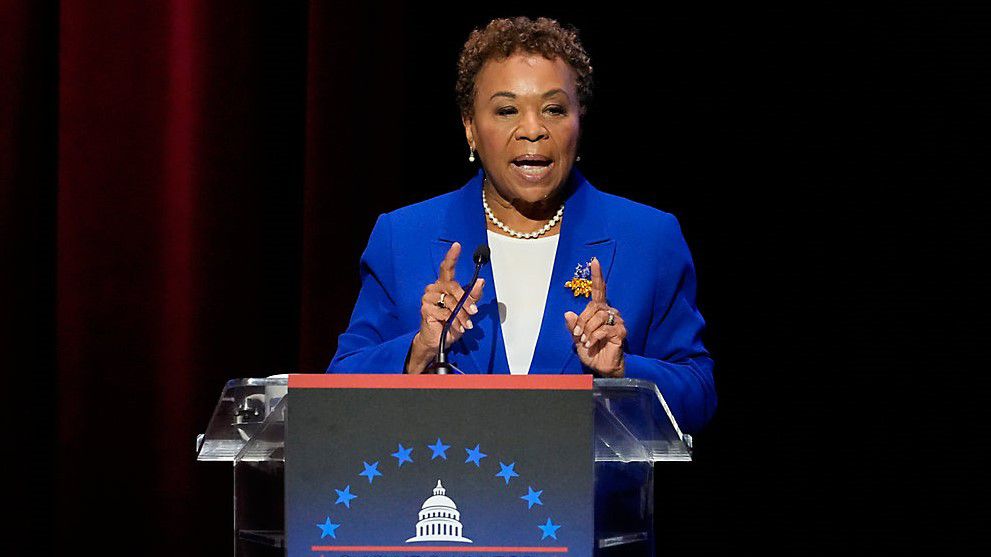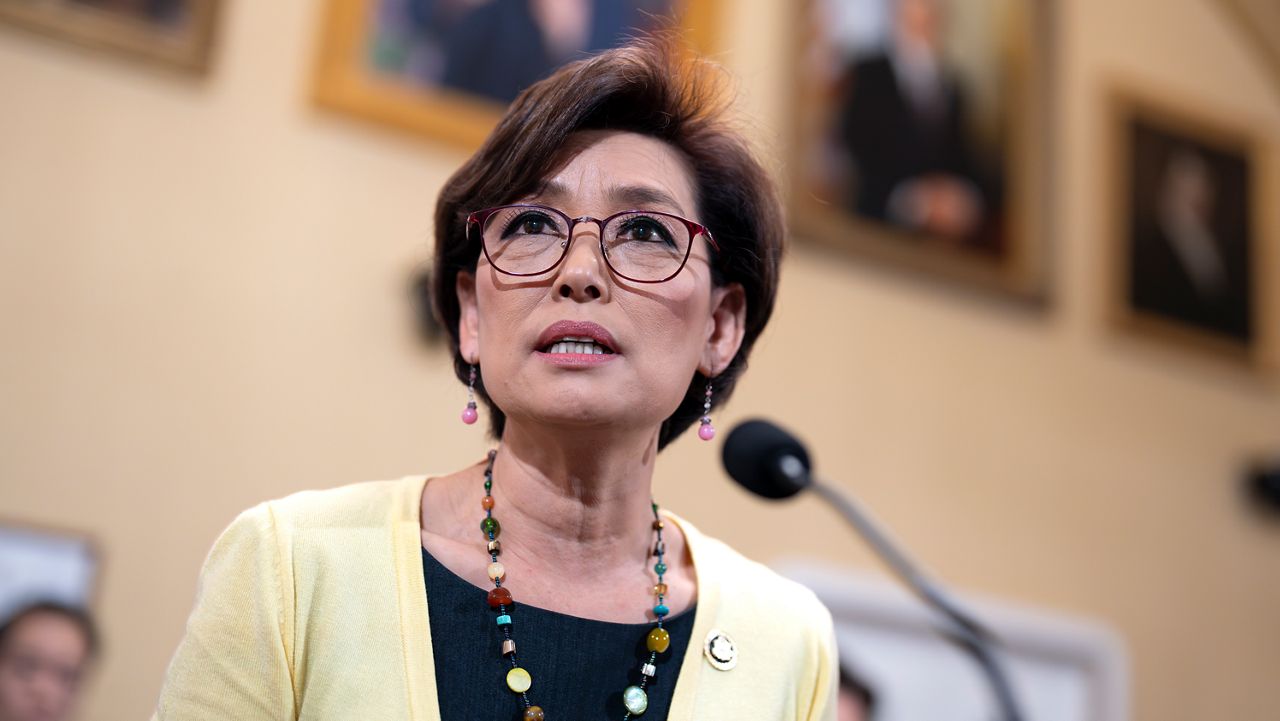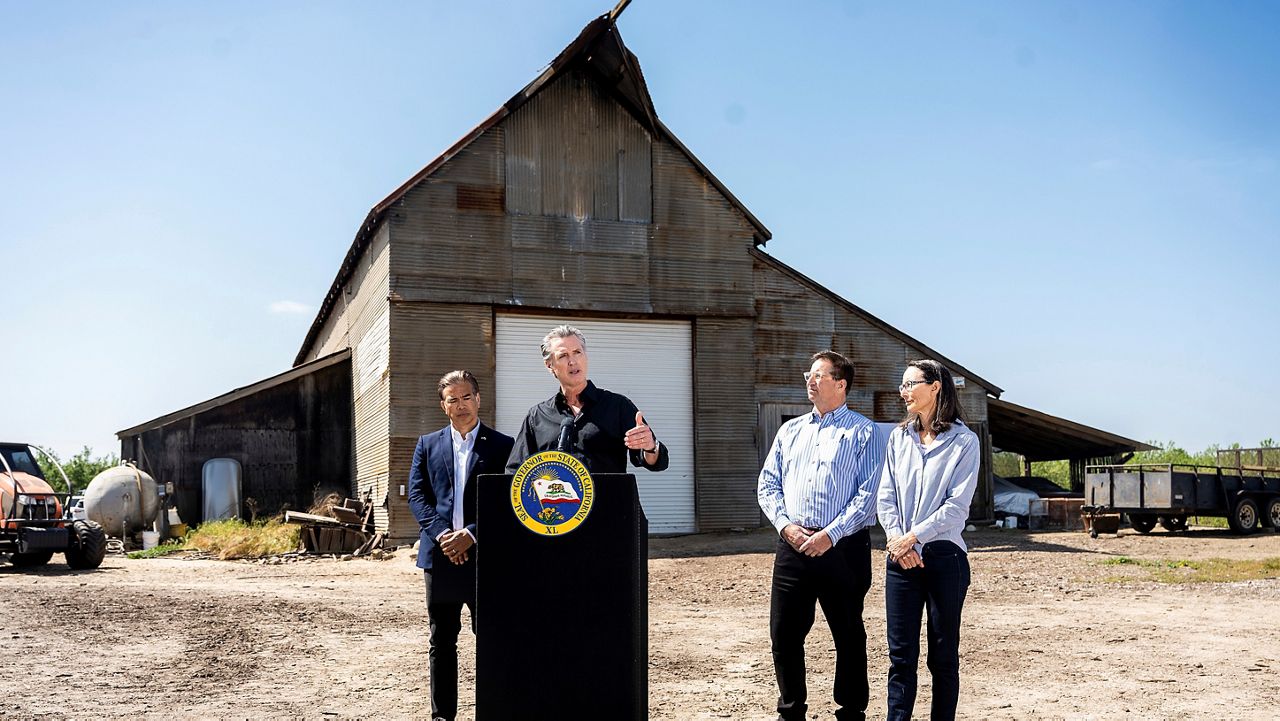Ahead of Monday night’s second Senate debate, Rep. Barbara Lee, D-Calif. is dropping her first policy outline, focusing on affordability and housing.
The plan, which Lee describes as “pragmatic progressive” policy approaches, would build upon legislation already introduced, including the Raise the Wage Act, the Housing Crisis Response Act, and the Ending Homelessness Act of 2023.
“Californians deserve immediate relief for the economic burdens they’re facing. These challenges require bold, realistic solutions that cannot wait. These plans are common sense and politically achievable,” Lee said in a statement to Spectrum News.
“Progress is about consistency and persistence — taking on each tough fight, breaking down each barrier ahead to eventually achieve the better world we’re fighting for. I’ve been the consistent, persistent progressive fighter that has delivered wins that allow Californians tax dollars to work for them. That’s why I’m committing to my Day 1 Policy Pillars — so that everyday Californians have change that they can count on seeing both now and in the future.”
Lee’s plan would be to work towards priorities such as raising the federal minimum wage from $7.25 an hour to $17 an hour to match wages with the average cost of living for a family of 4 in the Bay Area, as well as work on expanding the Low-Income Housing Tax Credit, as well as champion housing bills and paid family leave.
“Fighting for the greater vision of an equitable, livable and prosperous California means taking achievable, immediate action to uplift working families and low-income people. That starts with lowering housing costs, increasing wages to a living wage and giving families access to affordable child care. In the Senate, I will deliver policies that give working people the support they need now and in the future,” said Lee.
The Ending Homelessness Act of 2023, a bill sponsored by fellow California Rep. Maxine Waters, is a key portion of this plan; Lee is a cosponsor of the bill, which proposes $10 billion in federal funding spread out over 5 years to build affordable housing nationwide.
The bill, according to Waters’ office, “is projected to fund the creation of 410,000 new units of housing for people experiencing homelessness and effectively end widespread homelessness and housing instability.” Reps. Adam Schiff, D-Calif. and Katie Porter, D-Calif. are also listed as co-sponsors.
Both Schiff and Porter have released their own agendas in recent weeks: Schiff has released an affordability agenda, one focused on protecting democracy, and a housing agenda, while Porter has released a plan to “shake up the Senate,” and a housing plan of her own. Lee’s which comes just a few days later, focuses on a more all encompassing housing and affordability approach that her campaign sees as doable by folding it in to future tax legislation, such as when the Trump-era tax cuts expire in 2025.
“There are some people in this race that are saying, you know, they need an outside perspective in Washington. Well, part of this is knowing how this place works,” said a Lee campaign staffer. “Relationships and knowing how to legislate is what gets things done, not just the bright ideas. You need to have the bright ideas, but you also need to know how to do stuff and ensure that these priorities get included, and what the best vehicle to get them included.”
In a Republican-controlled House and a slim Democratic majority in the Senate — compromise is the only way that any of these goals by the three candidates become reality. The bills in Lee’s platform are all sponsored by Democrats.
But those close to Lee argue her plan is the most realistic to address the issues, rather than a “pie in the sky” plan.
“She's been an appropriator for a very long time, she's a progressive that has managed to work across the aisle and actually get things done from establishing PEPFAR to working with Republicans on trying to repeal the AUMF,” said a Lee campaign staffer. “She really was focusing on ensuring that she had policy plans that were achievable and measurable within her first Senate term.”
“She's been a House member for 25 years – the House is kind of seen as the pie in the sky proposals that come through – and in the Senate, she wants to bring some of these policies to real life and show that the Senate doesn't need to be just a place where legislation goes to die,” they added.
“Some of her opponents may be a little bit more ambitious in some of the things that could actually be achievable given the political dynamics that we may be facing in 2025," the staffer said. "These are some things that she wants to enact day one that she thinks are achievable legislatively.”
Lee has been an outspoken advocate for access to affordable housing and services for those experiencing homelessness. She has often shared how she left an abusive relationship and as a single mother, became unhoused as a result. She potentially saved her life and that of her children, but it was not an easy choice.
“We must do more to support survivors,” she said in January.
She also reprimanded Republican U.S. Senate candidate and former Dodgers standout Steve Garvey during last month’s debate for his comments about “touching” and speaking with individuals experiencing homelessness.
“I’ve just gotta say, as someone who’s been unsheltered, I cannot believe how he described his ‘walk’ and ‘touching,’” she said.
Her campaign staff said this weighed into her decisions on policy priorities.
“You can't address homelessness without addressing substance abuse and support services and all these other kinds of things," said the staffer. "But the other thing that often isn't talked – about because sometimes there is just a stigma painted across homelessness that only impacts people that are experiencing these things as well – sometimes the face of homelessness is a single mother who just is struggling to make ends meet because price is too high, and she's not getting paid enough for her minimum wage job. That's Barbara Lee."
“Putting a face to poverty and giving poverty a voice in Congress, in the House. She did that and it definitely doesn't have many champions in the Senate that will straight up talk about the needs of poor people. We always talk about the middle classes, the Democratic Party, and that's obviously incredibly important – but it's also literally helping poor people. And that is something that a lens that she's lived and experienced that she wants to take to a chamber that often ignores those folks.”
Lee, who has struggled to match Schiff and Porter’s fundraising numbers, is battling to survive the primary election. In California, the top two candidates regardless of party move on to the general election. A recent poll conducted by researchers at USC, CSU Long Beach and Cal Poly Pomona found Lee with just 7% of support from likely voters, with Porter and Garvey deadlocked at 15%. Schiff leads the pack at 25%.
Experts have told Spectrum News that these plans are simple ways that the candidates can connect on the issues ahead of the March 5 primary.
“In this election, both Katie Porter and Adam Schiff, as well as Barbara Lee, are looking for name recognition and identification with voters. And so one way to sort of gin up earned media is to roll out plans and identify exactly what their policy platform is to a number of voters in California that actually aren't familiar at all with their names,” Matt Lesenyie, a professor at California State University Long Beach, explained last month when the candidates began rolling out their platforms.
With California totalling 163,696 square miles, Lesenyie argues that most individuals outside their given district likely don’t know much about the candidates or what they stand for, unless they are politically plugged in.
“Most Californians aren't represented by these people and in our political coverage, we're more likely to hear about statewide officials — the Lieutenant Governor — than you are to hear about a member of Congress from some far-flung district. And so while they're all powerful and sort of a part of the leadership team or adjacent to it in the beltway, back here at home they are really relative unknowns,” he said.
The second California Senate debate kicks off at 7 p.m. PST.








